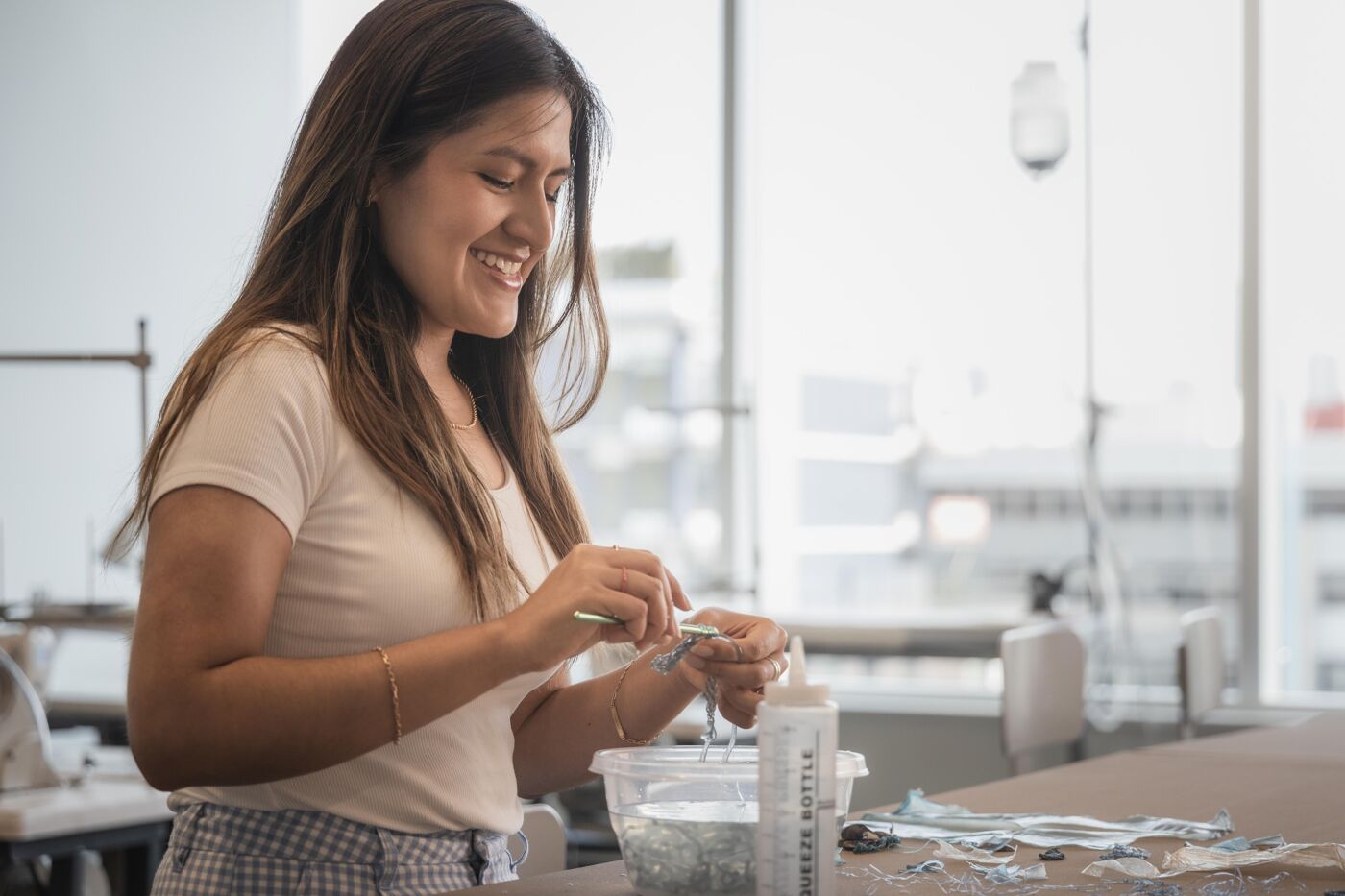
Fashion is full of big ideas. But one LaSalle College Vancouver student is proving those ideas can also make a big difference. Ariana Crispin, a Bachelor of Fashion Design student, has just won the Télio Impact Award—and a $1,000 prize—for creating a brand-new material made from seaweed.
The Concern behind the Creation
Ariana’s project speaks to a bigger concern shaping the fashion world today. Most fabrics we wear—like polyester—are made from oil. They don’t break down, they shed microplastics, and their production has a heavy environmental footprint. With the fashion industry already responsible for enormous amounts of waste and emissions, alternatives––like Ariana’s biomaterial––aren’t just creative—they’re critical.

Seaweed, but Make It Fashion
So how does it work? Ariana used alginate, a biopolymer found in seaweed, and mixed it with natural ingredients like glycerin, water, and plant-based dyes. The result is a material that’s biodegradable, renewable, and non-toxic. No polluting factories. No microplastics left behind. Even better, seaweed farming helps capture carbon and support marine life.
Threads, Sheets, and Surprising Shapes
From there, she experimented. Ariana spun the mixture into threads, tested it in crochet, dried it into translucent sheets, and shaped it into curves and textures. That means it can be used for fabrics, jewellery, and accessories—a new way to imagine what fashion can be.

An Award with Impact
This is exactly the kind of innovation the Télio Impact Award was created to celebrate. The prize recognizes student projects that rethink design with people and planet in mind, and that connect to the United Nations’ Sustainable Development Goals. Ariana’s project checks all the boxes: it’s creative, it’s responsible, and it points toward a future where fashion doesn’t come at the planet’s expense.
Designing With Purpose
For LaSalle College Vancouver, Ariana’s win shows what happens when students are encouraged to experiment and design with purpose. The Fashion Design program is built around that idea—helping students take bold ideas and turn them into real change.
Ariana’s story is proof that sustainable fashion isn’t just theory. It’s already happening, one student project at a time.

Feeling inspired?
Learn more about the Fashion Design programs at LaSalle College Vancouver.